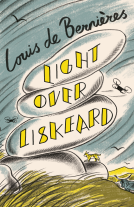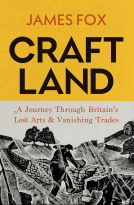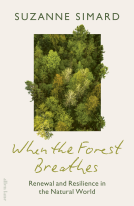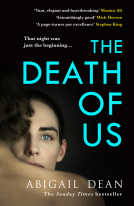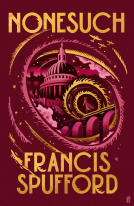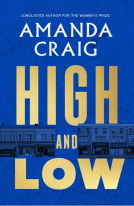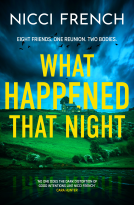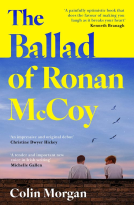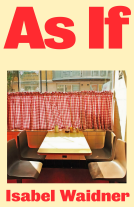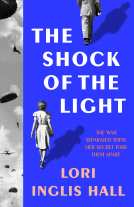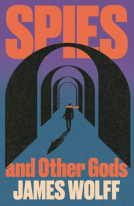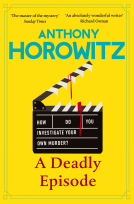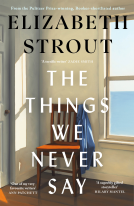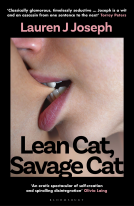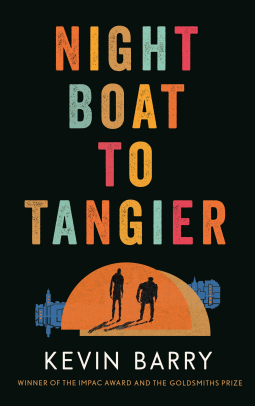
Night Boat to Tangier
by Kevin Barry
This title was previously available on NetGalley and is now archived.
Send NetGalley books directly to your Kindle or Kindle app
1
To read on a Kindle or Kindle app, please add kindle@netgalley.com as an approved email address to receive files in your Amazon account. Click here for step-by-step instructions.
2
Also find your Kindle email address within your Amazon account, and enter it here.
Pub Date 2 Apr 2020 | Archive Date 1 Jul 2020
Talking about this book? Use #NightBoatToTangier #NetGalley. More hashtag tips!
Description
LONGLISTED FOR THE BOOKER PRIZE
IRISH TIMES NUMBER ONE BESTSELLER
SHORTLISTED FOR NOVEL OF THE YEAR AT THE IRISH BOOK AWARDS, THE DALKEY LITERARY AWARDS AND THE KERRY GROUP AWARDS
A BOOK OF THE YEAR IN THE NEW YORK TIMES, NEW STATESMAN, TIMES LITERARY SUPPLEMENT, BIG ISSUE, i, THE ATLANTIC and LITERARY HUB
It’s late one night at the Spanish port of Algeciras and two fading Irish gangsters are waiting on the boat from Tangier. A lover has been lost, a daughter has gone missing, their world has come asunder – can it be put together again?
Advance Praise
It’s a Kevin Barry novel, so the brilliance is expected; everything else is a brilliant surprise - RODDY DOYLE
'I devoured Night Boat to Tangier. I loved the potent truth of it all, drenched in damage and romance. The Barry turn of phrase is a true wonder of this world' MAX PORTER
'If prose were gold and diamonds there’d be thousands of hell-bent prospectors heading for the Black Hills of Kevin Barry’s glistening, sparkling novel'
SEBASTIAN BARRY
'Brilliantly funny and terrifying at once, I was completely lost inside its dark craziness. Barry blends glorious voluptuous prose with entrancing storytelling'
TESSA HADLEY
'Stunning. One of the most affecting love stories I have ever come across'
MIKE McCORMACK
'A bloody mighty novel. It's audacious, but also it's Kevin Barry at his most tender. The novel carries a beautiful, mournful undertow to it, which is particularly affecting in a book so heavy with old myth and new poetry. May he keep twisting literature forever'
LISA McINERNEY
'There's plenty of sex, drugs, death and magic in Night Boat to Tangier, but above all it is a biting, black comedy of manners, driven by the profane dance of gangster etiquette'
COLIN BARRETT
'The gods of literature, who have so much love for Ireland, are sweet on Kevin Barry'
RICHARD BEARD
'Kevin Barry’s way with language is unique. The spring and bounce of it. The dark poetry. The cheek. And then there’s the sheer joyful recklessness of his imagination. There’s really no one to rival him'
RUPERT THOMSON
'Heartfelt yet darkly hilarious and simmering with menace, written with the kind of earthy lyricism only Kevin Barry can pull off – I loved it'
PAUL HOWARTH
PRAISE FOR BEATLEBONE:
'Books like this come along once in a generation'
New York Times
'Casually lyrical, formally inventive, funny and moving, it is a small wonder'
Sunday Times
'Gloriously freewheeling'
Guardian
'I think Kevin Barry is two kinds, if not three kinds, of a genius . . . wonderful storytelling . . . enormously cinematic'
BBC Radio 4 Saturday Review
'Superb . . . Beatlebone is a novel of necessary invention: profound, funny, hard to pin down'
Irish Times
'The most arresting and original writer to emerge from these island in years'
IRVINE WELSH
'Beatlebone is a wild cascade of language and imagery, rich in wordplay and referential resonance'
Spectator
Available Editions
| EDITION | Paperback |
| ISBN | 9781782116172 |
| PRICE | £8.99 (GBP) |
Average rating from 27 members
Featured Reviews
Night Boat to Tangier is an existential gangster novel, travelling between Ireland, Spain, and Morocco and musing on love and time. Charlie and Maurice, two Irish gangsters who've seen better days, are waiting in the Spanish port of Algeciras for the boat from Tangier. They're looking for a missing daughter, but what unfolds in between their waiting is the story of their past, of lost love and drugs and violence.
It is the tone and the carefully pitched conversations between Charlie and Maurice as they wait that really make this novel, taking it beyond the narrative of love and drug deals and betrayal into a kind of tragicomic realm where two characters play off each other brilliantly. Barry captures the sense of the history between them, but also the ridiculousness of these two men, and you could almost imagine the Algeciras scenes as a darkly comic play. In contrast, the flashback chapters that fleshed out their story and how they'd got to this point felt more standard gangster fare, solid but not quite touching the pace and tone of the conversations at the port.
This is a novel that proves that gangster stories can be told in exciting ways, using different writing styles and tones to really capture atmosphere. At times it felt like it was escaping the bounds of prose or the novel, with a sense of the dramatic and a film-like cutting between the present and the past, and this was a very welcome feature that brought the main characters to life.
 Trisha M, Reviewer
Trisha M, Reviewer
I'm a huge fan of Kevin Barry's storytelling and this book hasn't disappointed. He tells stories on so many levels and with such musicality of language that the book is gripping from beginning to end.. The story is seemingly quite simple and set in a ferry terminal but, oh there is so much more than that. It's a gripping, entertaining piece of writing that often at times made me just stop and roll the sentences around in my head - such is Barry's skill. The intimacy and depth of feeling that he can convey with just the right words could make you cry. Just brilliant.
 Paul F, Reviewer
Paul F, Reviewer
"At the port of Algeciras, in October 2018</b>
Would you say there’s any end in sight, Charlie?
I’d say you nearly have an answer to that question already, Maurice.
Two Irishmen sombre in the dank light of the terminal make gestures of long-sufferance and woe– they are born to such gestures, and offer them easily."
Kevin Barry's debut novel City of Bohane (my review https://www.goodreads.com/review/show/1425982809) won the Dublin Literary Prize and his second Beatlebone (https://www.goodreads.com/review/show/1429980411) the Goldsmiths Prize, so the advent of his third is potentially a major event.
Both of the two previous books impressed me in parts, but City of Bohane, although memorably atmospheric, didn't succeed for me as a story, and Beatlebone required rather more interest in John Lennon that I had, and I was unconvinced by the metafictional but rather artificial authorial intervention.
In that regard, although imperfect, Night Book to Tangier was more successful for me.
The novel opens, as per the opening quote, with two ageing Irish gangsters, in their early 50s according to the calendar but rather older based on life experiences, waiting in the dingy terminal at Algeciras in Spain, where ferries travel back and forth to Tangier.
One of Barry's strength is his visual descriptions and he beautifully conjours the pair:
"Maurice Hearne and Charlie Redmond sit on a bench just a few yards west of the hatch. They are in their low fifties. The years are rolling out like tide now. There is old weather on their faces, on the hard lines of their jaws, on their chaotic mouths. But they retain– just about– a rakish air.
Maurice Hearne’s jaunty, crooked smile will appear with frequency. His left eye is smeared and dead, the other oddly bewitched, as though with an excess of life, for balance. He wears a shabby suit, an open-necked black shirt, white runners and a derby hat perched high on the back of his head. Dudeish, at one time, certainly, but past it now. You’ve him told, Maurice. You’ve manners put on the boy.
Charlie Redmond? The face somehow has an antique look, like a court player’s, medieval, a man who’d strum his lute for you. In some meadowsweet lair. Hot, adulterous eyes and again a shabby suit, but dapper shoes in a rusted-orange tone, a pair of suede-finish creepers that whisper of brothels, also a handsome green corduroy neck-tie. Also, stomach trouble, bags like graves beneath the eyes, and soul trouble."
The two are there looking for Maurice's daughter, Dilly, who they haven't seen for 3 years but believe to be in with a company of 'crusties', and they've received word she may be crossing to or from Tangier tonight, so they approach those in the terminal asking after her:
"She’s a small girl. She’s a pretty girl. She’d probably still have the dreadlocks. Dreadlocks, you know? Bob Marley? Jah Rastafari? She might have a dog or two with her, I’d say. Dog on a rope kind of thing? She’s a pretty girl. She’s twenty-three years of age by now. She’ll be dreadlock Rastafari.
You know what we’re going to need, Charlie?
What’s that, Moss?
We’re going to need the Spanish for crusty."
(they are later told by two such "crusties" that "the Spanish for crusty, she says, is perroflauta. It means a-dog-and-a-flute, Leonor says ... They say it as a curse, Leonor says. Because they don’t like us, Ana says. They say we’re dirty. They don’t want the camps. They don’t want no dogs. That’s why we go to Maroc.")
Much of the novel's pleasure comes from the bickering and bantering between the pair, still menacing as they demonstrate by terrifying the first crusty they spot. Indeed at times this part of the novel read more as a play than a novel, which is indeed how it began its life per an interview with Barry just after he won the Goldsmiths Prize.
"On the desk in his shed is a play called Night Boat to Tangier, a commission for Dublin’s Abbey Theatre, about an Irishman in Spain searching for his daughter, who has run off with “a band of crusties”. Barry is increasingly drawn to drama, which doesn’t rely on the tedious scaffolding of prose fiction. He shows me an A4 pad on which he has drawn stick men in an attempt to make the page his stage."
https://www.newstatesman.com/culture/books/2016/06/kevin-barry-s-chaotic-journey-stoner-entrepreneur-ireland-s-most-unpredictable
But the novel also takes us back in episodic flashbacks to their past and how they got here. Drug smuggling was their game, although that has dried up. "The money now was in the movement of people," we're told a couple of times - which links in rather nicely with the people smuggling in the MBI longlisted The Death of Murat Idrissi, in which the port of Algeciras and the Tangier ferry also plays a key role.
Their history takes us through the "seven distractions– love, grief, pain, sentimentality, avarice, lust, want-of-death", and we learn of Maurice's turbulent relationship with his wife, caused by his lifestyle:
"The internecine strife of Maurice and Cynthia. More than twenty years she had given it. The sleeplessness and pain of the long absences, the hot lurches of emotion, the sudden reversals of fortune, the endless pleadings, the slow relentings, the golden times of morphiate heaven, the atrocities on both sides, the shock tactics, and the giddy joy of their lavish sexual reunions – it was all done with now."
and the rather unconventional childhood of their daughter Dilly:
"When she was a child, there would be callers at strange hours. Men in hats, and laughing women, and sometimes there were raised voices, and sometimes singing. All the lurchy moves and late-night exits – we’ve got to do the splits again, Dilly, will you pack what you need in your dinosaur bag?"
In the back story, Barry's gift for description comes to the fore - both the pithy one liner (a comment that a site chosen to build some new houses is rather exposed to the wind brings the retort "It’s the West of Ireland, he said. There’s a tendency to fucken wind.") as well as the more lyrical, for example this towards the novel's end:
"The peninsula ran its flank along the line of the coast road. The mountain absorbed the evening light and glowed morbidly. A roadside grotto showed the blue virgin. For the souls of the vehicular dead. By ten the moon was visible and drew her strangely. A vivid, late-summer moon. A xanthic was the word moon. She stopped the car and buzzed the window to hear the breath of sea; a strimmer vexed late in a high field; somewhere too the vixen screamed. On the ribs of the sea the last of the evening sun made bone-white marks. The hills for their part vibrated royally. It was close to night and oh-so-quiet again."
as well as Barry's signature from City of Bohane, the clothing description, here Charlie on his first trip to Spain to arrange a drug deal from Morocco:
"He wore a two-piece velour Gio-Goi tracksuit, a Kangol slouch hat and some kind of Brazilian– fucken Brazilian– trainers. The soles were made out of virgin rubber, Charlie had confided, with soft wonder in his voice. Charlie every month bought The Face and i-D magazines, spent hours on the fashion layouts, poring over them, with an expert’s keen and rueful air.
Are you trying to look like you’re involved in the fucken drug business? Maurice said. Drug business? Charlie said. I’m import– export. I’ve flown in for a trade show."
An atmospheric novel with a simple but ultimately powerful story as we come to understand why Tilly left home, and why the two men are there.
4 stars and recommended.
Thanks to the publisher via Netgalley for the ARC.
 Neil G, Reviewer
Neil G, Reviewer
October 2018. Maurice Hearne and Charles Redmond, both Irish, sit waiting at the ferry terminal in Algeciras, Spain. We soon learn that they are expecting to see Maurice’s daughter, Dilly, who has been absent for several years. Charles walks with a limp. Maurice has a bad eye.
The book proceeds in a mixture of talking at the ferry terminal and flashbacks that gradually answer our questions. We learn of Maurice and Charles’s history in drug smuggling and of some of its consequences. We learn of Dilly’s childhood. There is sex, there is sudden violence. Gradually we come to understand why they are in the ferry terminal and why they are waiting for Dilly.
But this book isn’t really about the story. It’s about the writing. I mean, who else can write ”The city ran a swarm of fast anchovy faces.”
Yes, I wanted to know how things shaped up for Maurice and Charles. Yes, I wanted to know why Charles dragged one leg as he walked and why Maurice had a dodgy eye. But mostly, I just wanted to read more of Barry’s poetic prose. For a story that is essentially about the history two violent gangsters, this is delicate and tender.
There’s sex, there are drugs, there is violence. But don’t let that put you off: this is beautifully written and a pleasure to read.
 Sue B, Reviewer
Sue B, Reviewer
An unprepossessing pair, Maurice and Charlie, a couple of hoodlums past their prime, but they grew on me as their story unfolded. Neither has much to be proud of in their past years - a mixture of drug taking, drug running and the kind of violence involved in that - both men bear the outward scars of old injuries. We come to learn of their inner scars too, their lost love for a woman and a daughter. The woman has died and the daughter has fled Ireland and buried herself in a hippy world in southern Spain and Morocco, which is why they are hanging out at the grungy ferry port in Algeciras. Will they meet and reconcile with her in this tawdry setting?
So much for the plot. My enjoyment of this story came not from the characters but from the atmosphere - of the ferry terminal, as soulless as only such places can be, of hot, sultry cities in Spain and of the far southwest coast of Ireland. Kevin Barry’s writing is inspired, such original turns of phrase on every page.
‘He arranged his face for Irish weather. This was not to be under-estimated. He scrunched his eyes against the wind. He twisted his mouth against the rain. Take these gestures and repeat them, times ten thousand for the life, and times the generations, and times the epochs and the eras, and see how the effect digs beneath the skin, enters the racial soul, prepares its affront to the world, and offers it - ……’
 Peter B, Reviewer
Peter B, Reviewer
"He adored Cynthia the first time he saw her. When she turned the twist of a smile on him, he felt like he'd stepped off the earth."
Two Irish gangsters, well past their prime, wait for a ferry in the sleepy Spanish port of Algeciras. Maurice Hearne, the one with the missing eye, is hoping to find his daughter Dilly, whom he hasn't seen in over three years. The limping Charlie Redmond, his old pal and business associate, hands out flyers of the missing girl and pesters the poor attendant at the Información desk. The pair have seen better days but they still exude an air of menace. They reminisce about their glory days and mourn for lost love. We also learn how they got their injuries.
The story starts off as a kind of black comedy, the two men cracking jokes and telling stories about their early years, the dialogue singing in their bouncing Cork brogue. The tone often shifts however, into something dark and tragic. Flashbacks explain how they came to make their fortune, a drug-dealing venture providing more profit than they knew how to spend. The relentless danger and pressure took a toll on Maurice: "He was more than possessed by his crimes and excesses - he was the gaunt accumulation of them." He felt his mind begin to unravel and believed that this illness was in his blood:
"He was from a line of madmen centuries deep. Who have all these years crawled beneath the skin of the night and trembled there. Who were found waking in the corners of wet Irish fields. Who were found crawling the rocks and in the seacaves. Found on hospital wards, and in bars, and in the depths of the woods."
Truthfully, Night Boat to Tangier is a love story. Cynthia, Dilly's mother, is the sun, moon and stars for Maurice, always has been. We deduce that she's not in the picture right now and read on to discover why. There were happy times, often drug-fuelled, and plenty of heartbreak, but they produced a beautiful daughter. Cynthia still fills his every waking thought, whether he likes it or not: "He will never lose the feeling of the love that they had together, or the nausea of its absence. Hate is not the answer to love; death is its answer." Eventually we get to hear from Cynthia herself, and we find out what the relationship meant to her:
"The sleeplessness and pain of the long absences, the hot lurches of emotion, the sudden reversals of fortune, the endless pleadings, the slow relentings, the golden times of morphiate heaven, the atrocities on both sides, the shock tactics, and the giddy joy of their lavish sexual reunions"
It's a story of lasting friendship and doomed romance. It's a tale of terrifying madness and reckless humour. Violence always seems to be on cusp of breaking out, but the tension is undercut with surprising tenderness and an unshakeable melancholy. It is written with the agility and conviction of a master storyteller. Night Boat to Tangier is another wild, lyrical dream from the unique imagination of Kevin Barry.
 Carol H, Reviewer
Carol H, Reviewer
My first thought when I started this was “Waiting for Godot” but even now thinking of this book now makes me smile.
Two veteran rascals waiting on a the docks at Algeciras start reminiscing. As the night progresses many questions are answered, including why are they there, why Maurice has a problem with his eye, why Charlies has a limp, where is Dilly.
These two men are not nice but it’s impossible not have a soft spot for the people they are now sitting on the dockside.
Maurice Hearne and Charlie Redmond, has-been drug dealers in their fifties (and looking much older) have known each other for ever. Petty criminals in their teenage years, vicious dealers in their native Cork, best friends and enemies, they are united in their search for Maurice’s daughter, Dilly, in ‘Night Boat to Tangier’. It’s all that gives them purpose now. As Charlie muses at the end of the novel, ‘the prospect of another November is a mean taste at the back of his throat.’ The glory days are past and the men can only be ‘halfways hopeful’ about anything.
In this novel which takes the reader back and forth from Algeciras to Cork, Beara, London, Cadiz, Barcelona, Segovia and Malaga from 1994 – 2018, everything and nothing happens. Kevin Barry’s brilliant dialogue ensures that his readers simultaneously feel sorry for and are appalled by his anti-heroes. Maurice and Charlie are just as capable of self-knowledge and allegiance as they are of dishonesty and deception. In short, they are desperate men: desperate for the past they had hoped for and for a future that seems unattainable. Barry does not romanticise their narcotic-fuelled lives. They live in a grim, barbaric and ruthless world. And yet these men are capable of love and longing; for a parent, a woman, a child, even a dog. The couple are both terrifying and pitiable.
This is a gruelling yet engrossing read. Barry does not only invoke these men through their past and their here and now. It is what they don’t say to each other which is also so telling. Rather like a twenty-first century Estragon and Vladimir, they wait; not for Godot but for the Tangier night boat – ‘…this next boat coming in, this boat from Tangier? Or …going out?’ - and its promise of a gift which might make life bearable. And they hold us with their stories so that we wait with them too.
My thanks to NetGalley and Canongate for a copy of this novel in exchange for a fair review.
 Paromjit H, Reviewer
Paromjit H, Reviewer
Kevin Barry is one of my favourite Irish writers and I approached this, his latest novel with a sense of great anticipation and delight. His prose is sublime and lyrical, with his adept shifts in tone, his use of the vernacular, his inclusions of the fantastical, the bad luck of fairy mounds, spells and curses, and the mystics conversing with the dead. It has shades of Waiting for Godot, Maurice Hearne and Charlie Redmond, are old before their time, ageing has been Irish gangsters, searching for Maurice's daughter, the pretty, pale green eyed, dreadlocked, 23 year old, Dilly, whom they have not seen for 3 years at the Spanish ferry port of Algeciras. They used to be drug smugglers, tainted with the life of danger and fear that the drugs business guarantees, but the market fell through the floor, now its all about slavery and the misery of human trafficking.
The two still exude an air of menace, glimmers of piratical smiles and an edgy jauntiness, despite Charlie's limp and Maurice's damaged eye. They have information that Dilly will either be arriving or leaving on the night boat to Tangier, so they hand out flyers, interrogating the 'crusties' as they converse about a past that has led to their presence here at the ferry port. Their fractured cacophony of memories, often morbid and maudlin, take in Cork, Barcelona, Malaga, London and Cadiz, and the love of Maurice's life, Cynthia, Dilly's mother. Their fracturing lives encompass betrayal, the night at the Judas Iscariot club, the plethora of misfortune, lust and other women, the fights, paranoia, the fights and fury of drug fuelled lives, the violence, familial mental health issues going back to ancient times, of what it is to be an Irish man and a impoverished future that lies in tatters around them. And within the struggle to bear the weight of their past traumas and toxicity lies the answer as to why Dilly left.
This is a read to be savoured, for its language, for its depth, for the stellar and memorable characterisation, my only complaint is that the novel finished far too soon. It touches on profound issues of what it is to live, identity, love that leaves indelible permanent scars, masculinity, the price of criminality and violence, loss, grief, residing in a landscape of madness, and being a father. A riveting and absorbing novel that I know I will be reading again. Highly recommended. Many thanks to Canongate for an ARC.
Night Boat to Tangier is a powerful and expressive novel with fascinating characters that have corrupted and harmed themselves and those around them. Kevin Barry's unforgiving poetic style nails the moments that linger well after the words are read.
Maurice Hearne and Charlie Redmond are two aging, disfigured, Irish gangsters, waiting in a lifeless ferry terminal in Algeciras. They are waiting for Maurice’s daughter, Dilly, whom he hasn’t seen in 3 years. She will reportedly leave or arrive on a boat from Tangier within the next 24 hours. “Now the hours melt one into the other at the port of Algeciras. For the fading Irish gangsters, the long wait continues.” Life is a series of memories and as they wait for Dilly they reflect on their past, and flashbacks take us to their lives fuelled with sex, crime, drugs, alcohol, sex and drugs.
“They were hammering into the Powers, the John Jameson, it was breakfast from the bottle and elevenses off the mirror. The child would as well be raised by the cats that sat lazily in what April sun troubled itself to come across the rooftops of Berehaven.”
As drug dealers they made money, as poor investors and a wasteful life they lost money. Haunting, Irish, Bad Luck with its mythical forces have been disturbed as Maurice tried to excavate a fairy mound with a building project. Not a bit of wonder his life has gone to shite. He lost the only woman he ever loved, Cynthia – Dilly’s mother, and his memories of her, torture his waking and sleeping moments. He knew he was bad for her but he also truly loved her too much to completely let go. As we get to know their demons and failings, and the reason Dilly left, do Maurice and Charlie deserve our empathy or forgiveness as our judgement gets blurred?
Kevin Barry is such an exceptional author, with writing to be relished for its striking eloquence and absorbing depth. The harsh dialogue and caustic history of Maurice and Charlie is so stunningly portrayed that your own imagination causes you to gasp and shudder. His books are shorter than average but contain meaning that would take books 3 times the length to achieve.
I would highly recommend this book and I’d like to thank Canongate and NetGalley for providing me with an ARC copy in return for an honest review.
 Alan M, Bookseller
Alan M, Bookseller
‘They talk of ageing and death. They talk of those they have crossed and those they have helped, of their first loves and lost loves, of their enemies and friends. They talk of the old days in Cork, and in Barcelona, and in London, and in Málaga, and in the ghosted city of Cádiz. They talk of the feelings of those places. They talk about being here, once again, on the coast of Barbary, as though on a magnet’s drag.’
Wowser. In what is turning out, for me, to be a vintage year of astonishing literary fiction, 2019 produces another book that has left me in awe of its skill, its dexterity, and its power to profoundly move.
Two Irish gangsters, in their early 50s, sit in the ferry terminal at Algeciras. They are waiting for a woman to arrive, either on or for the night boat to Tangier. She is Dilly Hearne, the two men are her father Maurice Hearne and Charlie Redmond, his lifelong friend and enemy. Over the course of the next twenty-four hours the two men talk and reminisce, and as the narrative skips back in time we learn more of the history of these two characters, of their pain and sorrow and, yes, some nefarious drug-dealing. Chapter One opens with the line: ‘Would you say there’s any end in sight, Charlie?’, and the final chapter very nearly closes with the line: ‘Is there any end in sight, Maurice?’ Yes, we are very much in Waiting for Godot territory; indeed, the novel started out as a draft for a play which Barry chose to make a novel instead. For me, that’s entirely a good decision, for surely a play would suffer in contrast to Beckett’s classic? As it is, the book distils the essence of – indeed quotes from - the great Irish trilogy of Beckett, Joyce, and Yeats; it is a hymn to Irish identity and manhood and nostalgia, the seven distractions, as the book calls them: love, grief, pain, sentimentality, avarice, lust, want-of-death. Maurice in particular, we learn from the flashbacks, has spent a wandering time, leaving and returning to Ireland as events carry him:
‘Fucking Ireland. Its smiling fiends. Its speaking rocks. Its haunted fields. Its sea memory. Its wildness and strife. Its haunt of melancholy. The way it closes in.’
These are damaged men – and dangerous men, the kind of man you would precisely not want to meet on a dark night at a ferry terminal. Charlie has one badly damaged leg, Maurice has one badly damaged eye – these are important, as we learn just how they got these injuries and how they are, in a way, the outward illustration of their intertwined lives and the violence in their souls. A couple of times you physically flinch as a reader when you read some of the violence, brief though it is. From the pair’s opening encounter at the terminal with a boy called Benny and his dog the threat is just below the surface, and it doesn’t take long for it to reveal itself. And yet, and yet… Their story is beguiling, lyrical, and for some crazy reason you pity these two middle-aged men who are ‘old enough for the long view in either direction now.’
Kevin Barry writes the kind of sentences that draw you in with their poetic lilt and, bam!, a sudden jolt back to reality:
‘The world was at its cusp and turned to begin the long, slow slide into new light, new time, and he couldn’t fucking bear it.’
How can a book about two gangsters draw you in so much? That is its genius. The novel is full of tenderness and lyricism, of regret and pain; it is funny and raw and at times you might just need to put it down and walk away, to return later. Maurice and Charlie will remind you of yourself, and that is why you will like them, even if you know you shouldn’t. Ultimately it is a book about simply surviving, of accepting the past, and as they leave the ferry terminal at the end of the novel, in the pouring rain, you will want to believe, like Maurice, that it might stop raining soon. A dazzling book, which will definitely be one of my books of the year. 5 twinkling Irish stars.
(With thanks to the publisher and NetGalley for an ARC of this title.)
